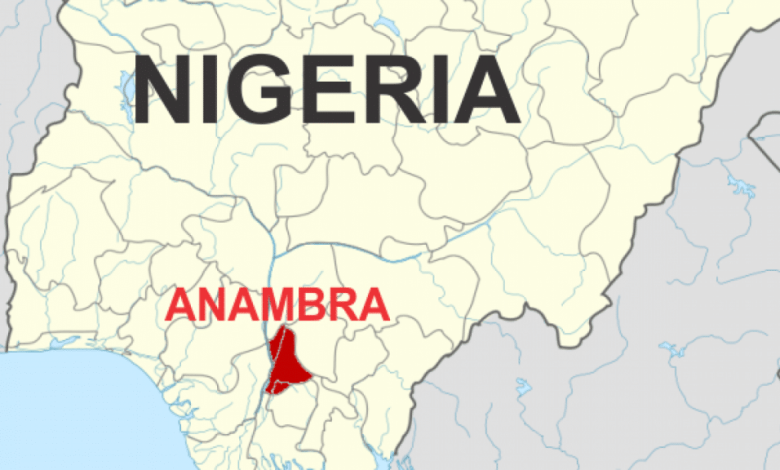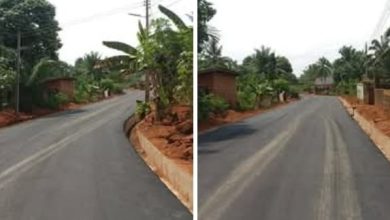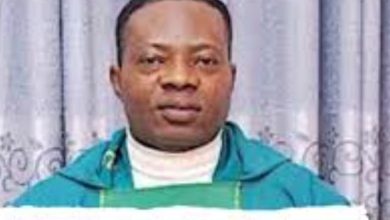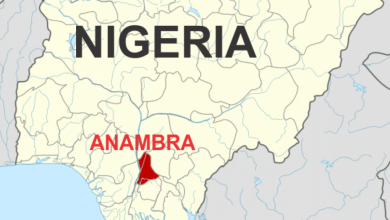
By Our Correspondent
The Methodist Bishop of Awka Diocese, Rt Rev Moses Nwakanma has observed that the severe internal challenges facing Nigeria are seriously threatening the country’s stability and well-being of the citizens.
Speaking on the state of the nation during the 3rd Diocesan Synod of the church at Christ Methodist Church, Nkpor near Onitsha, Bishop Nwakanma said that as of April 2025, the security situation in the country deteriorated significantly in many regions, with deadly conflicts becoming increasingly commonplace;
According to him, the current crisis between Fulani herders and farming communities across the country has reached alarming levels and needed proper handling.
The Bishop said: “In Benue State, for instance, recent massacres have claimed hundreds of lives as armed herders attacked multiple farming settlements.
Similar violence also erupted in Enugu State, where entire villages have been abandoned following deadly night raids.
“The situation in Jos, Plateau State, remains equally dire, with inter-communal violence resulting in retaliatory attacks that have created cycles of bloodshed.
“These conflicts have complex roots in resource competition, historical grievances, and ineffective security responses. The federal government’s hesitancy to classify these attacks appropriately or implement decisive security measures has fuelled perceptions of bias and neglect among affected communities.”
He noted that the number of Internally Displaced Persons (IDPs) has increased tremendously across the Middle Belt region, thus creating a humanitarian crisis that overwhelms available resources.
He added that the federal government’s interference in state affairs has undermined democratic principles through the manipulation of security forces, judicial processes, and economic pressure.
He also lamented that the independence of electoral bodies had been questioned, following controversial decisions that appear to favour those in power.
The cleric said further: “Economic conditions have continued to worsen for ordinary Nigerians. Inflation remains stubbornly high, especially affecting food prices. The removal of fuel subsidy, while economically necessary, created hardships that have not been adequately addressed by promised palliative measures.
“Youth unemployment continues to rise, creating a reservoir of frustration that fuels crime and makes young people susceptible to radical ideologies.
“The healthcare system struggles to meet basic needs, with public hospitals lacking essential medications and equipment. Recent outbreaks of preventable diseases highlight the fragility of public health infrastructure.
“Educational institutions fare no better, with frequent strikes disrupting academic calendars and deteriorating facilities undermining learning outcomes.
“Corruption remains entrenched at all levels of government, draining resources that could address these multifaceted challenges. High-profile anti-corruption cases often stall in courts or end in questionable settlements, reinforcing public cynicism about accountability.
“The confluence of these crises; security breakdown, democratic regression, economic hardship, and institutional failure, creates a dangerous situation that requires urgent, thoughtful intervention.
“Nigeria stands at a critical juncture where addressing these interconnected challenges requires political will, inclusive dialogue, and institutional reform to prevent further deterioration and begin rebuilding national cohesion and prosperity.”
In his message to the synod, the Prelate of the Methodist Church of Nigeria, His Eminence, Oliver Ali Aba said although times are hard, leaders of the church must come together to tackle some of the challenges they could handle.
“We are living witnesses to the prevailing unstable economic climate in Nigeria, such as high exchange rate, high cost of doing business, inadequate supply of energy, insecurity and lack of employment opportunities, ” he said.




